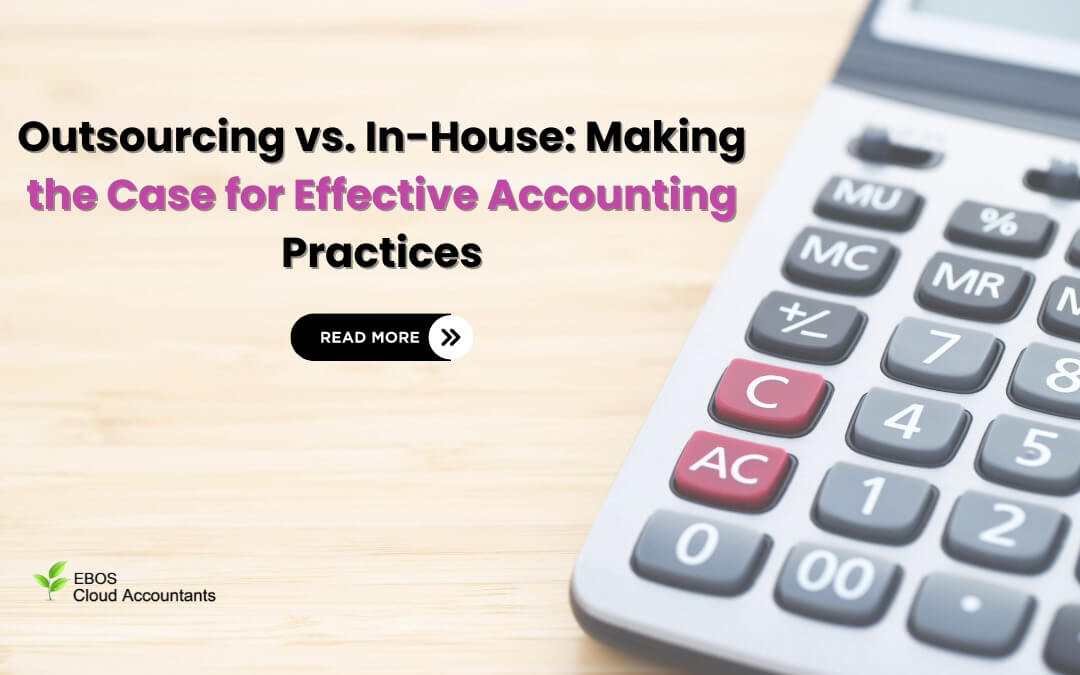As a small business owner, you have a lot on your plate, including ensuring that you’re devoting enough time and attention to the necessary tasks while avoiding distractions. But one critical decision to make is whether to outsource your accounting requirements.
But what precisely does this mean? And how do you decide if it’s appropriate for your company? While there are numerous advantages to hiring an accountant, it’s crucial to recognize that there is no one-size-fits-all solution for every organization.
So, in this post, we’ll go deeper into the case for effective accounting practices for both outsource accounting and in-house solutions.
Outsource Accounting
1. Access to Expert Skills: Outsourcing accounting gives you access to a pool of expert accounting professionals with various skill sets. These specialists are often experts in a variety of fields, including tax preparation, auditing, and financial analysis.
2. Cost Savings: Outsourcing accounting activities, especially for smaller organizations, can be more cost-effective than hiring and maintaining an in-house accounting team. Outsourcing accounting firms often offer flexible pricing structures, allowing businesses to pay only for the services they require while avoiding the overhead costs associated with hiring full-time personnel.
3. Focus on Core Business Activities: By outsourcing accounting processes, organizations can divert their own resources and focus on core business activities that generate growth and profitability.
4. Scalability and Flexibility: Outsourced accounting services can be easily scaled up or down to match fluctuations in business activity or accounting needs.
Whether you’re conducting year-end financial reporting or managing day-to-day bookkeeping operations, outsourcing provides flexibility without the burden of hiring and training new employees.
In-house Accounting
1. Immediate Response and Control: Having an in-house accounting team gives organizations immediate access to financial data and insights. This speeds up decision-making while allowing management to maintain direct oversight and control over accounting processes and procedures.
2. Tailored Solutions: In-house accounting teams thoroughly understand the company’s operations, objectives, and challenges. They can tailor accounting systems and procedures to fit the organization’s unique demands and preferences, leading to increased efficiency and effectiveness.
3. Cultural Alignment and Company Knowledge: In-house accountants deeply understand the company’s culture and values, resulting in a better comprehension of business operations and goals.
4. Confidentiality and Data Security: Maintaining accounting processes in-house can safeguard sensitive financial information. Organizations can establish internal controls and protocols to prevent data breaches and unauthorized access to financial data.
In Summary
The choice between outsourcing accounting and maintaining it in-house depends on various factors, including the company’s size and complexity, budget constraints, regulatory needs, and strategic objectives.
Both approaches offer significant advantages, and organizations may find that a combination of outsourcing and in-house solutions leads to the most effective accounting processes tailored to their specific needs and circumstances.
Contact EBOS Cloud Accountants for accounting specialists or advisors who can provide insights specific to your business.







